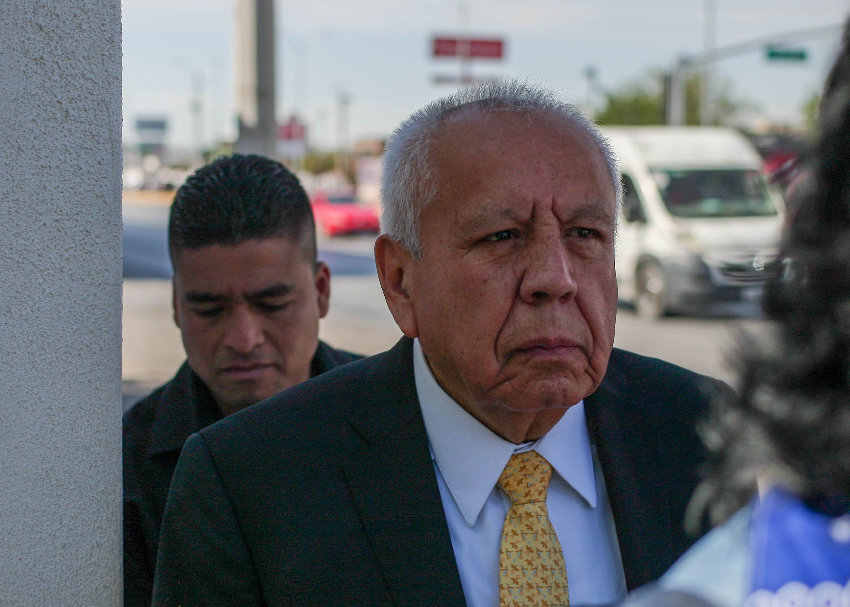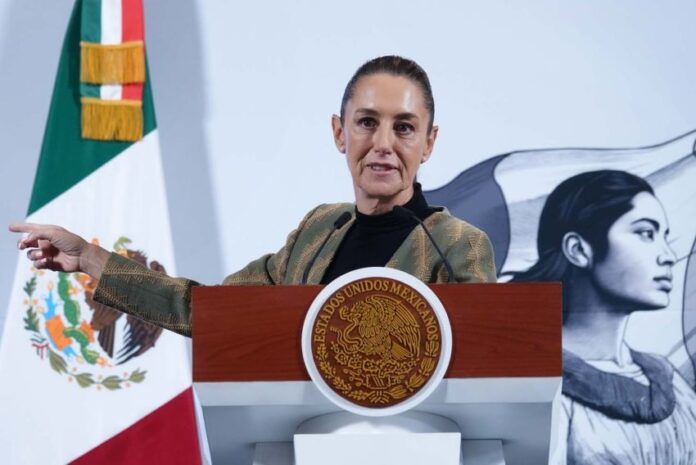The United States’ proposed tariff on Mexican tomatoes, a change of leadership at the National Migration Institute and the need to keep deportee reception centers open were among the issues President Claudia Sheinbaum spoke about at her Tuesday morning press conference.
Here is a recap of the president’s April 15 mañanera.
‘That’s wrong’: Sheinbaum hits out at US for not notifying Mexican government about tomato tariff
During her Q&A session with reporters, Sheinbaum turned her attention to the United States government’s announcement on Monday that it intends to impose duties of almost 21% on imports of most tomatoes from Mexico starting in July.
“About tomatoes, it’s important that this is known,” she told reporters.
“The Mexican government wasn’t notified, not through the Ministry of Foreign Affairs or the Ministry of the Economy or the Ministry of Agriculture,” Sheinbaum said, adding that the U.S. government only told the U.S.-based lawyers of Mexican tomato producers about its intention to terminate a six-year-old bilateral agreement and impose duties on Mexican tomatoes.
“That’s wrong. They should have notified the Mexican government as well,” she said.
Sheinbaum denied that Mexican tomato growers are dumping the fruit in the United States.
“Some United States producers complain that the price of Mexican tomatoes is lower,” she acknowledged before declaring that the Mexican government isn’t subsidizing Mexican growers.
“There is no dumping,” Sheinbaum said.
Like Agriculture Minister Julio Berdegué, the president expressed confidence that Mexico will succeed in having the proposed duties on Mexican tomatoes averted or suspended.
Whether the duties are imposed or not, Mexico will continue exporting tomatoes to the United States, Sheinbaum said.
She also said that Mexico could impose duties on imports of chicken and pork legs from the United States, products for which Mexico has active antidumping investigations.
Former Puebla governor to assume INM leadership on May 1
Sheinbaum told reporters that former Puebla governor Sergio Salómon will replace Francisco Garduño as director of the National Migration Institute (INM) on May 1.
She announced in October that Salómon, governor of Puebla between 2022 and 2024, would become the next head of the INM.
Garduño faced a formal criminal charge in connection with a fire in a Ciudad Juárez detention center that claimed the lives of 40 migrants in March 2023. However, the case against him has been suspended and won’t be reopened unless he fails to comply with a range of requirements.

Sheinbaum said that Salomón has not yet assumed the INM leadership because she wanted Garduño in the job during the initial period of the second Trump administration.
“You know that one of the important issues in the relationship with the United States is the issue of migration,” she said.
“… There was a lot of dialogue with the United States as the very beginning when President Trump arrived, so we didn’t want a transition [at the INM] at that time,” Sheinbaum said, explaining that Garduño has established relationships with “his counterpart in the United States” — presumably the head of U.S. Immigration and Customs Enforcement” — and “particularly” his opposite number in Guatemala.
Deportee reception centers will remain open
Sheinbaum said that she had decided to keep open the 10 reception centers, or temporary shelters, that were set up in northern border cities as part of the government’s “México te abraza” (Mexico embraces you) program for people deported to Mexico during the second Trump administration.
She said in early March that the government would evaluate whether it was necessary to maintain the 10 shelters on the northern border or whether fewer than that number were required.
On Tuesday, Sheinbaum said the shelters would remain open because the U.S. government is saying “there will be more deportations.”
“So we need to have everything that is needed to be able to receive our compatriots,” she said
On March 17, Sheinbaum said that Mexico had received just over 24,000 deportees from the United States since Trump took office on Jan. 20. She hasn’t provided an update on the number of deportee arrivals since then.
By Mexico News Daily chief staff writer Peter Davies (peter.davies@mexiconewsdaily.com)
